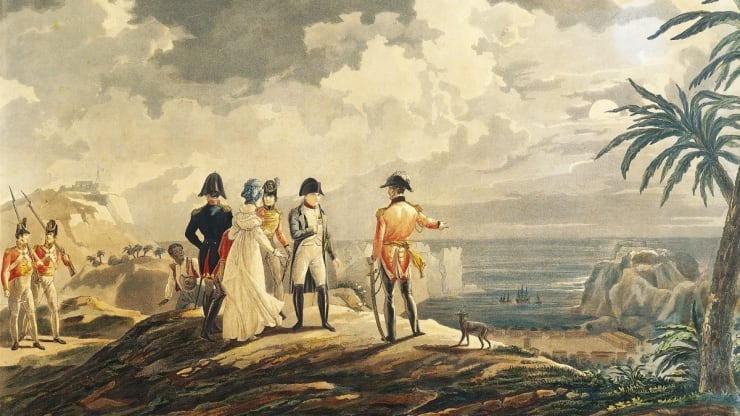Díky za článek. 
11.4. 1814 Napoleon was sent to the island of Elba
Categories: Personalities , Calendar

When they learned of Napoleon's arrival on the island of Elba, they began to plan a grand celebration. In the end, it didn't happen. At least the mayor symbolically handed the French leader the key to Portoferraio.TheEmperor had to go into exile after the signing of the Treaty of Fontainebleau on 11 April 1814.
The agreement was named after the place where it was concluded. That is, after the French town of Fontainebleau. It was concluded between representatives of Austria, Prussia and Napoleon I on 11 April 1814. He lost his position and had to leave for the island of Elba. "The treaty granted Napoleon the island as his property, allowed him to wear the imperial title and guaranteed him a pension of two million francs," says Otto's Learned Dictionary.
Napoleon could choose between Elba and Corfu. He chose the former for several reasons. The French commander liked the local customs, but also the mild climate. He planned to devote much of his time to study. As soon as the news spread in Portoferraio, the largest town on Elba, that Napoleon was heading there, the locals began planning a grand welcome.
The town council, the military command, all the authorities and the local inhabitants were in a state of euphoria. They had drawn up a whole programme of festivities but were unable to put it into practice. In the end, they stacked a few bonfires in the streets, put up about two trains and a few young people shouted in the streets. They also wanted to build a triumphal arch, but that also failed. Napoleon arrived at the port of Portoferraio on May 3, 1814, to be exact. The mayor symbolically handed him the keys to the city.
France became a kingdom again, and it was headed by Louis XVIII, brother of the revolutionary executed Louis XVI. "But not for long. Relief that the wars were over was replaced by a rapidly growing discontent with the regime, in which royalist ultras around the king sought to return to pre-revolutionary conditions. Most discontented was the reduced army, many of whose members had been purgedwere reduced to half-pay and condemned to misery," writes Jiří Kovařík in his book Napoleon's Soldier: What He Was Like, How He Lived, and Why He Fought.
When Napoleon escaped from Elba, he was greeted with enthusiasm by most of the French, and he reached Paris, from which Louis XVIII had fled, without firing a shot. But the anti-Napoleonic coalition would have none of it. "The ending Congress of Vienna, however, branded Napoleon as a pest of world peace, and a war with overwhelming odds loomed on the horizon," Kovarik adds. But Napoleon managed to return and regain the throne. The restored empire, however, survived only 110 days. Napoleon's reign finally ended after his defeat at the Battle of Waterloo on 18 June 1815.
Sources:
Otto's Learned Dictionary
www.infoelba.com
www.history.com
Jiri Kovarik, Napoleon's Soldier: What He Was Like, How He Lived, and Why He Fought
The article is included in categories:



